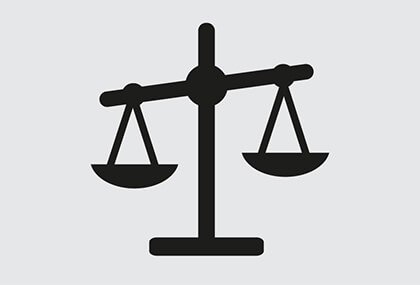The State Coroner’s Court of New South Wales, or the Coroner’s Court, is a government body charged with overseeing and coordinating coronial services in NSW.
Under the Coroner’s Act 2009 (NSW) (‘Coroner’s Act’), the Coroner’s role is to investigate and hold inquests concerning reportable deaths and suspected deaths of persons, and to make inquiries concerning certain fires and explosion that do not involve deaths or suspected deaths.
The Coroner can only investigate matters that occur within the state of New South Wales, and deaths and suspected deaths that have occurred within the last 100 years.
Once the Coroner investigates a matter, it determines the details of what occurred, establishing the identity of the deceased and the date, place, circumstances and medical cause of death based upon the available evidence.
Most notably, the Coroner has power to make recommendations to governments and other agencies, which often involves recommendations on how services can be better improved to avoid similar deaths.
Unfortunately there is no mechanism available to the NSW Coroner to ensure these recommendations are actually put in place, however, the increasing media coverage the NSW Coroner’s findings attract place significant public pressure on subject parties to ensure the recommendations are adopted.
What is a reportable death?
As noted above, the Coroner’s Act confers power onto the NSW Coroner to hold an inquest concerning the death or suspected death of a person if the person’s death appears to be a ‘reportable death’.
Section 6 of The Coroner’s Act defines a reportable death to be a death that was:
- Violent or unnatural;
- Sudden and without a known cause;
- Suspicious or occurring under unusual circumstances;
- In circumstances where the person had not been attended by doctor during the 6 month period before the person’s death;
- In circumstances where the death was not a reasonably expected outcome of a health-related procedure carried out on the person; or
- Occurred while the person was in or temporarily absent from a mental health facility.
There is an obligation to report deaths that occur in any of the above ways to the NSW State Coroner under Section 25 of the Coroner’s Act. Failure to report these deaths can result in the imposition of considerable fines on the parties who have the obligation to report them.
Inquest into the death of Paul Lau[1] [2]
In March 2018, numerous media outlets publicised details of the Inquest into the Death of Paul Lau. Mr Lau was 54 year old father-of-two who had died in hospital shortly after a routine knee reconstruction after a medication mix up where he was given medication meant for another patient.
Mr Lau underwent day surgery for an anterior cruciate ligament reconstruction to his left knee at Macquarie University Hospital on 18 June 2015. During his recovery, there was an anaesthetic mishap in which he was prescribed very high levels of opioids in error.
This caused Mr Lau to develop pneumonia as a result from mixed drug toxicity. The Hospital staff failed to detect the error that led to Mr Lau’s unfortunate death on 19 June 2015.
In the Inquest into the death of Paul Lau, Mr Lau’s death would have become a reportable death by the hospital given that his death was not a reasonably expected outcome of a health-related procedure.
That is, Mr Lau’s death would not have been reasonable arising out of routine knee surgery.
Apart from cases such as these that are widely publicised, the Coroner deals with thousands of deaths that are referred to it for investigation each year. The NSW Coroner investigates approximately 6,000 reportable deaths each year[3].
Coronial Inquests and Findings
After a reportable death has been investigated and the relevant material has been collected, a coronial inquest is commenced.
An Inquest will often take place over several days, in which the Coroner will hear submissions from the legal representation of all parties involved. This will generally involve the consideration of expert medical opinions and clarification of what occurred in the lead up of the deceased’s death.
Once an Inquest has been concluded, the Coroner must determine the following details in accordance with Section 3 of the Coroner’s Act:
- The identity of the deceased;
- Date of death;
- Place of death;
- Cause of death; and,
- Manner of death.
In addition to making recommendations in relation to matters in connection with the inquest or inquiry, the Coroner may, particularly in heinous cases, refer the matter to other government bodies for further investigation and possible punishment.
If you require legal advice regarding the death of a loved one being referred to the Coroner’s Court, or would like to know your legal entitlements in compensation arising out Coronial Inquiries, Inquests or Medical Negligence, please contact one of our experienced lawyers at Stacks Goudkamp. For more information and to arrange a free consultation please contact Stacks Goudkamp on 1800 251 800 or alternatively make an online enquiry.
[1] https://www.9news.com.au/national/2018/03/29/11/31/man-died-after-hospital-medication-mix-up?ocid=Social-9NewsS
[2] http://www.coroners.justice.nsw.gov.au/Documents/Findings%20Paul%20Lau%20Final.pdf
[3] http://www.coroners.justice.nsw.gov.au/Pages/about_us/about_us.aspx



